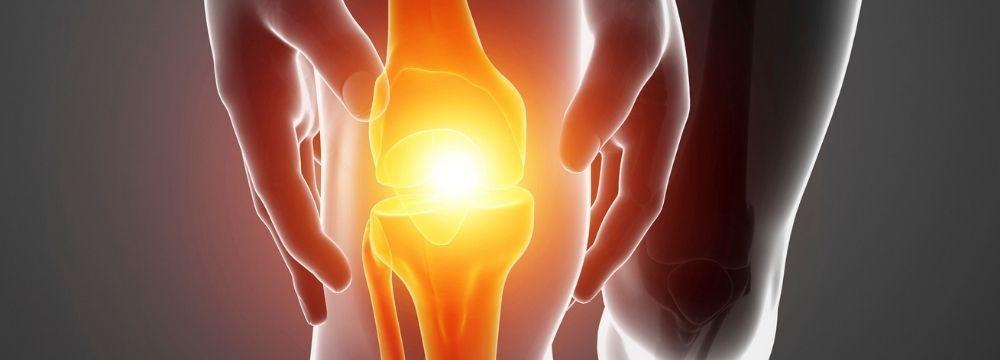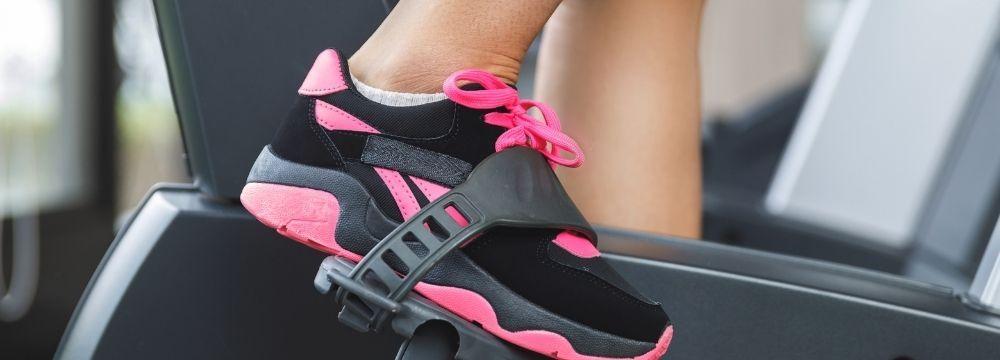Blog Archives
Are We Near the Cure for Rectal Cancer? All Cancers?

It’s an almost unbelievable situation. A cancer drug trial performed at a leading cancer institute with seemingly rigid protocols ended with remission in every participant. This is the new reality described in a paper published in the New England Journal of Medicine1 of a drug trial for the treatment of rectal cancer at Memorial Sloan Kettering Cancer Center in New York City.
Twelve patients took the drug dostarlimab, a single-agent PD-1 blockade, over 6 months and 12 patients came through with no detectable cancer, even when advanced PET and MRI diagnostics were performed. They did not receive traditional cancer treatments like surgery, chemotherapy, or radiation.
Using Photos to Jumpstart Your Weight Loss

When dealing with excess weight and obesity, you may avoid taking photos and videos on vacations or family get-togethers. You may even dislike looking in the mirror. However, doing so can be a great way to jumpstart your weight loss and keep yourself motivated as you begin to lose weight.
Before bariatric surgery, many patients recall the moment that they looked at a recent photo of themselves. Some declare that they didn’t even recognize themselves. They looked older and larger than they believed themselves to be. However, that stark realization finally allows many patients to come to terms with where they are and where they need to go. It is often when they realize that they can’t do it by themselves. There’s just too much weight to lose.
But even after surgery, photos and journaling play a big part in success. We suggest taking pictures of yourself every few weeks during the first six months to a year after surgery, and after that time, taking a photo once every 2 to 3 months helps see your longer-term progress. Journaling your progress is also a great way not only to lose more weight but to remind yourself of how far you’ve come, especially when you’re feeling down or unmotivated.
Gastric Bypass for GERD

Obesity is a leading cause of GERD and related issues, like hiatal hernias. Studies have shown that increased body mass index and excess eating can stress the esophagus. Certain bariatric surgeries can correct GERD, but others can bring it about or worsen existing cases.
The Roux-en-Y gastric bypass procedure is the gold standard in eliminating severe and uncontrolled GERD. This is particularly true when comparing it to the gastric band or the gastric sleeve, both of which may cause a small number of patients to experience new or worsened acid reflux. However, it is worth noting that the likelihood of new or worsened GERD after the gastric sleeve is significantly reduced when a hiatal hernia, if present, is identified and correct during surgery.
Another Reason to Lose Weight and Get Healthier – Your Kids

One of the most common reasons our patients consider bariatric surgery is that they want to be around for their kids or grandkids. This is a great reason to get healthy and a noble goal for getting started on a weight loss program. However, a more profound and arguably even more important reason revolves around those same kids. Kids tend to mimic and follow the behaviors and habits that they see from their parents and grandparents.
So yes, while you may get to enjoy your kids more than you do now, you may also be saving them from severe metabolic disease later in life.
Does a Water Fast Make Sense for a Bariatric Patient?

You may have come across intermittent fasting in your diet research. Intermittent fasting is one of the few dietary programs that isn’t a fad and has a basis in research and history. Humans have fasted out of necessity, religiously or for weight loss purposes, for hundreds if not thousands of years. Fasting has proven to be relatively successful in helping patients lose weight.
Caffeine’s Place in the Bariatric Diet

Today we will be talking about caffeine, a staple in just about everyone’s diet. Whether it is coffee, black, or green teas, chocolate, or sodas, caffeinated products are ubiquitous in modern-day society. Over the past several decades, we’ve heard mixed reviews about caffeinated products and caffeine. Are they helpful or hurtful? Can they help you lose weight, or do they make you hungry? The data is all over the map. However, there are some steadfast rules that bariatric patients need to follow to ensure that their caffeine consumption is not detrimental to their health and their weight loss after bariatric surgery.
Having an Orthopedic Procedure After Bariatric Surgery

Decades of excess weight may have caused you to experience significant joint pain. This joint pain is common in those suffering from obesity and is called osteoarthritis. Osteoarthritis occurs when the soft cartilage between our joints, which essentially acts as a protective layer between bones, begins to degrade. You can imagine how the constant excess weight rubbing on the structures can wear them down over time. The result can be significant pain that may lead to the need for joint replacement surgery. Most commonly, this occurs in the knees and hips, but can occur almost anywhere in the body. If you have visited an orthopedic surgeon about your chronic pain, and you have a BMI of over 40, you’ve likely been told that a procedure is too risky and that you must lose some weight prior to surgery.
Navigating the Pre-op Bariatric Liver Shrink Diet

Depending on your circumstance, your bariatric surgeon may require that you participate in a low-calorie preoperative liver shrink diet, lasting anywhere from five days to two weeks, several weeks prior to surgery. This diet is very restrictive and like what you will experience in the liquid diet for the first week or so after surgery. And there is very good reason for this. When we perform bariatric surgery, we are visualizing the abdominal cavity and stomach. The liver is close by, and a larger, fattier liver means less visibility. As you can imagine, visibility is one of the most important components of a successful laparoscopic or robotic surgical procedure.
With our patients suffering from morbid or even extreme obesity, the safety and effectiveness of the bariatric procedure may be compromised without this preoperative diet.
How Do I Get Through This Diet?
Many patients look at the pre-op liver shrink diet with trepidation. How is it possible to eat just several hundred calories a day and keep my head on straight? To be sure it is daunting; but we first must remember that this is a necessity for a safer and more effective procedure. As such, it should be taken seriously.
Second, this pre-op diet gives you a glimpse into what you will experience in the first weeks after bariatric surgery. Remember, today you have all your faculties about you, but after surgery, you will be recovering from physical trauma, as well as some brain fog associated with the anesthesia and maybe a couple days of narcotic medication. Knowing what to expect now can help you be sure to follow the appropriate diet later.
Third, remember that the first two days are the hardest and it gets easier from there. You may have tried to fast before, and you’ll probably remember that you had a day or two of feeling downright terrible — hungry, headache and more. This is totally normal and usually subsides by day three. In fact, halfway through your first week, you should feel more energy and just feel better than you may have in a long time.
This is also a reminder of what a big decision you’ve made. You may have had your share of naysayers tell you that bariatric surgery is the easy way out. However, nothing could be further from the truth. This is the first glimpse of the challenges you will face as you lose weight and change your life. Nothing is easy, so be sure to redouble your efforts and follow your pre-op diet closely. It’ll serve to get you started on the right track.
Finally, remember that you are not alone. You can always contact us for guidance. Beyond our practice, which will be side-by-side with you throughout this journey, there are friends, family members and prior bariatric patients who can support you and cheer you on as you claim your new life.
Related Topics:
Does a Peloton Make Sense for Bariatric Patients?

There’s no doubt that we, as humans, look for the next great diet or exercise solution. In fact, just judging by the size of the diet and exercise industry in the United States, we probably think about it a lot more than we even realize. So, when a novel product comes on the market, there’s a whole lot of excitement around it. Case in point is the Peloton bike. Marketed as a premium spinning bike, it also offers a subscription-based series of classes that can be taken on demand. But does a Peloton make sense for a bariatric surgery patient?
Before delving into this question, it is important to remember that you need to speak to your bariatric surgeon before starting any new exercise program. You should also remember that in the six to eight weeks after bariatric surgery, you will want to exercise, but you will not want to overdo it. As such, if a Peloton bike is in your sights, you should only start it once you have been cleared by your bariatric team.
Five Food Substitutions You Can Start Tomorrow

Sometimes we are under the impression that to gain success in weight loss and better health one must make some drastic changes. After all, we didn’t get into this position by having an extra carrot stick or two or over-indulging in green smoothies. We likely got into a routine and never managed to, or wanted to, find our way out. But what if I told you that getting out of those weeds can be as easy as the way we got in?
One thing nutritionists and trainers always seem to stress is that the place you are in now was not an overnight detour. Choices were made and, in truth, that is the only way to get right back on the path. But you don’t jump from the middle of the forest to the path. You find a clearing until you find another clearing and eventually these pathways lead you to certainty and safety.
